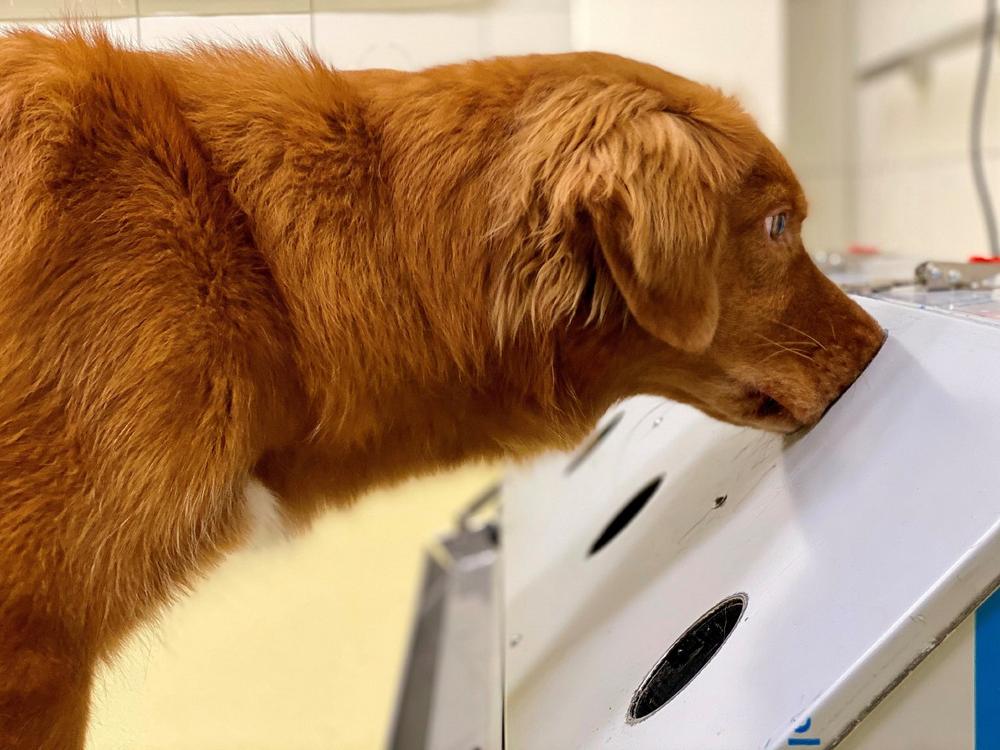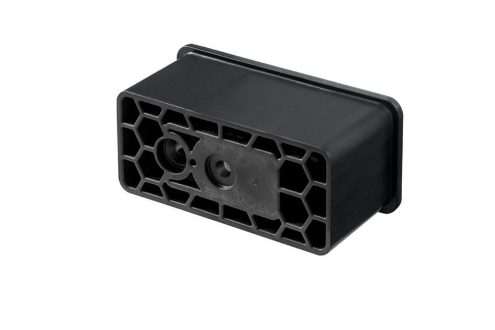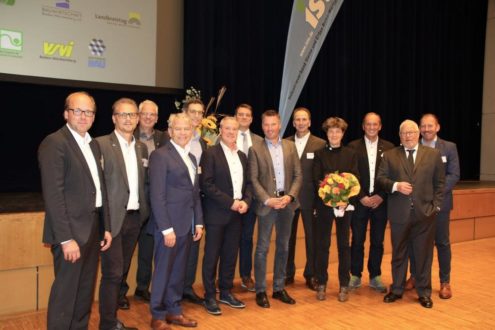
Back to culture – Corona sniffer dogs’ real-life feasibility study was successful
The overall rate of concordant results was almost 100 percent. Eight dogs had been trained in advance to recognize SARS-CoV-2-positive samples by smell. To evaluate how well the corona detection dogs‘ performance of screening people for SARS-CoV-2 works in an everyday situation, the project team organized four concerts with Fury in the Slaughterhouse, Bosse, Alle Farben and Sido. A total of 2,802 participants came to the four events. They all provided sweat samples, which were presented to the dogs in a line-up scenario where the visitors had no direct contact with the dogs. In addition, all participants had been tested with a SARS-CoV-2-specific rapid antigen test and an RT-qPCR before the respective concert. They also provided information on age, gender, vaccination status and their medical history.
The SARS-CoV-2 detection dogs achieved a diagnostic specificity of 99.93 percent (detection of negative samples) and a sensitivity of 81.58 percent (detection of positive samples). The overall agreement rate was 99.68 percent. The majority of the participants had been vaccinated with different vaccines and vaccination schedules, several visitors suffered from chronic illnesses and were treated with chronic medication. This did not affect the decisions and working behaviour of the dogs.
Professor Holger Volk, head of the TiHo’s small animal clinic, said: "Our results show that SARS-CoV-2 detection dogs can achieve high diagnostic accuracy in a real-world scenario. Vaccination status, previous SARS-CoV-2 infection, chronic illness and medication of the participants had no impact on the dogs‘ ability to detect an acute infection. The study also demonstrates how corona detection dogs can be used in everyday life.”
The project "Back to Culture"
As early as July 2020, a research team from the Clinic for Small Animals had shown in a pilot study that dogs, with their exceptional sense of smell, are able to distinguish between samples from SARS-CoV-2-infected and healthy people under laboratory conditions with around 94 percent certainty. A follow-up study showed that sweat and urine are also suitable sample materials. The aim of the joint project "Back to Culture" was to examine how and whether major events can be made safer by using corona detection dogs. The study results also provide a statement as to whether corona detection dogs could also be used in other everyday situations.
The original publication
ten Hagen NA, Twele F, Meller S, et al. Canine real-time detection of SARSCoV2 infections in the context of a mass screening event. BMJ Global Health 2022;0:e010276. https://doi.org/…
Review article providing further details
Jendrny, P., Twele, F., Meller, S. et al. Canine olfactory detection and its relevance to medical detection. BMC Infect Dis (2021) https://doi.org/…
Stiftung Tierärztliche Hochschule Hannover
Bünteweg 2
30559 Hannover
Telefon: +49 (511) 953-8002
Telefax: +49 (511) 953-828002
https://www.tiho-hannover.de/
Klinik für Kleintiere
Telefon: +49 (511) 953-6202
E-Mail: holger.volk@tiho-hannover.de
Leiterin Presse- und Öffentlichkeitsarbeit
Telefon: +49 (511) 953-8002
Fax: +49 (511) 953-828002
E-Mail: sonja.von.brethorst@tiho-hannover.de
![]()




